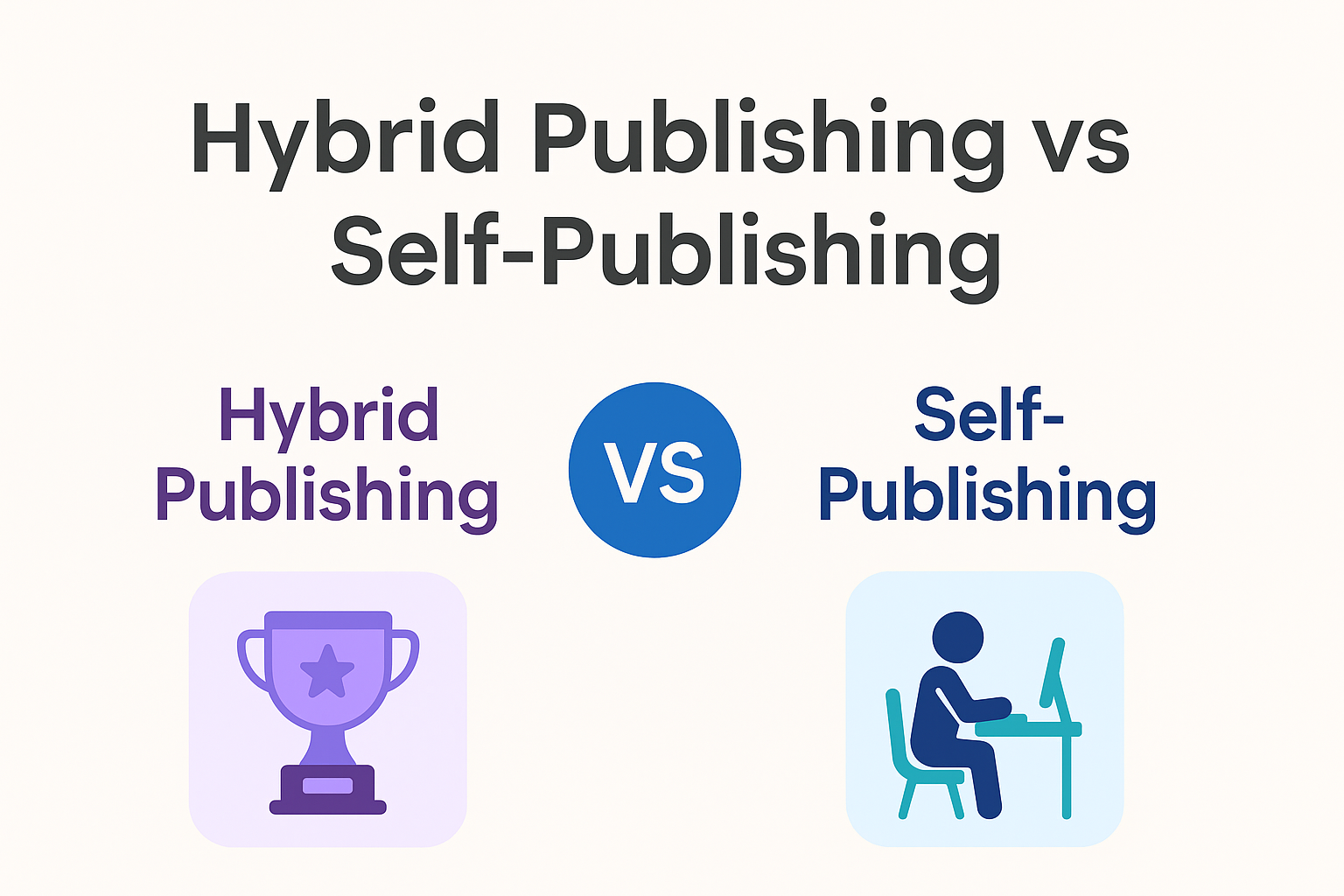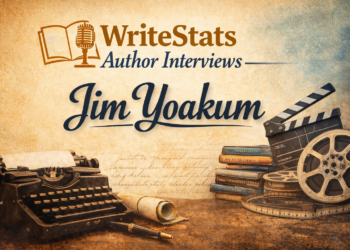For authors today, the question of hybrid publishing vs self-publishing has become one of the most important choices in the publishing journey. Both paths are valid, both can lead to success, and both are growing rapidly. But they’re also very different in terms of cost, control, speed, and support.
The good news? You don’t have to guess. By looking at data, industry trends, and real author experiences, you can make an informed choice that aligns with your personal goals.
What Exactly Is Hybrid Publishing?
Hybrid publishing is often described as the middle ground between traditional publishing and self-publishing. It blends professional support with author investment. That means you’re not doing everything on your own, but you’re also not handing over full control to a publishing house.
A hybrid publisher usually provides:
- Professional editing and design services to guarantee your book meets industry standards.
- Distribution networks that reach bookstores and libraries.
- Marketing guidance (sometimes included, sometimes optional).
But here’s the catch: you pay upfront, often anywhere between $5,000 and $20,000. The idea is that both you and the publisher share the risk.
As one hybrid publisher put it: “We’re partners, not gatekeepers. The author brings the vision, and we bring the polish.”
From our WriteStats article What Is Hybrid Publishing? Complete Guide for Authors (2025), hybrid publishing often works well for authors who want credibility, a polished product, and bookstore access without the long waits of traditional publishing.
What About Self-Publishing?
Self-publishing is pure independence. You manage everything: editing, cover design, formatting, marketing, distribution, and sales. Platforms like Amazon KDP, IngramSpark, and Draft2Digital make it simple to upload and distribute globally.
The appeal is obvious:
- Total creative freedom. You own every decision.
- Higher royalties. Amazon, for example, pays up to 70% royalties on ebooks.
- Speed to market. You can release your book as soon as it’s ready.
The trade-off is that the burden of success rests squarely on you. If your cover looks amateurish or your editing isn’t sharp, readers notice. Marketing also requires persistence.
Still, the payoff can be worth it. In 93% of Indie Authors Are Happy They Self-Published, the majority cited control and creative satisfaction as key reasons for their happiness. One indie author put it simply: “I’d rather make my own mistakes than hand over my book to someone else’s vision.”
The Industry Trends You Should Know
The publishing world is shifting, and knowing where it’s headed can help shape your decision.
- In our blog Hybrid Publishing Growth: The Future of Publishing, we reported that 16% of authors identify as hybrid authors, a number steadily climbing each year.
- Meanwhile, 76% identify as self-published authors, reflecting the dominance and accessibility of this model.
- The global publishing market is projected to reach $149.19 billion by 2035, growing at a steady 3.7% annually. Hybrid publishing is flagged as one of the forces driving this expansion.
And don’t underestimate self-publishing’s momentum: in 2022, over 1.4 million books were added to Amazon KDP alone.
Hybrid Publishing vs Self-Publishing: Key Differences
Here’s what the hybrid publishing vs self-publishing decision feels like once you’re in the trenches:
- Control and Creativity: Self publishing means every choice—cover, title, pricing, even metadata—is yours. Hybrid gives you input but layers in professional guidance. If you’re protective of your vision, self-publishing might feel more natural. If you value collaboration, hybrid could be refreshing.
- Costs and Earnings: Self-publishing has flexible costs. You can spend $500 or $5,000 depending on how much you invest in editing, design, and marketing. Hybrid almost always requires higher upfront investment, but in exchange you’re paying for guaranteed professional support.
- Speed: Want to release your book in weeks? Self-publishing allows it. Hybrid publishing usually takes several months, ensuring the editing and production processes aren’t rushed.
- Distribution and Credibility: Self-publishing gives you global reach online, but getting into bookstores is harder. Hybrid publishers often already have bookstore relationships, boosting your book’s chance of landing on physical shelves.
Who Thrives Where? Real-World Examples
Picture this:
- A fantasy author with a strong TikTok following loves designing their own covers and wants to experiment with fast releases. Self-publishing gives them freedom and higher royalties.
- A business coach writing a thought-leadership book wants a polished product, credibility, and bookstore presence to back speaking engagements. Hybrid publishing makes more sense for them.
Neither is wrong. It’s about fit, not formula.
Tips to Help You Decide
No matter which path you’re leaning toward, here are actionable tips that can help:
- Start with your goals. If speed and independence matter most, self-publishing is appealing. If professionalism and distribution matter more, hybrid publishing deserves a look.
- Run the numbers. For hybrid, request detailed quotes. For self-publishing, budget for editing, cover design, formatting, and ads.
- Vet hybrid publishers carefully. As noted in our guide, reputable ones are selective and transparent. Red flag: anyone who accepts every manuscript.
- Invest in quality regardless. Poor editing and weak design will hold back even the most brilliant story.
- Think about marketing early. Hybrid publishers may help, but your personal effort is still essential. Build an email list, network with readers, and use social media to grow visibility.
- Test first. Consider self-publishing a shorter work (like a novella or nonfiction guide) before committing to a hybrid deal. It’ll teach you the ropes and help you gauge what support you actually need.
A Balanced Takeaway
The choice between hybrid publishing vs self-publishing isn’t about finding the “better” option, it’s about choosing the path that fits your strengths, resources, and goals.
Hybrid publishing provides polish, credibility, and wider distribution, but at a higher cost and with less control. Self-publishing provides freedom, speed, and higher royalties, but demands more effort and skill from you as an entrepreneur.
As one author wisely said: “Publishing isn’t one-size-fits-all, it’s one-size-fits-YOU.”
Whether you’re dreaming of bookstore shelves or building a thriving online reader base, success is possible on either path. The key is being honest about what you want and what you’re willing to put in.
Still not sure whether hybrid publishing or self publishing is the right fit? Here’s a simple checklist to help you make your decision: Decision checklist.png









